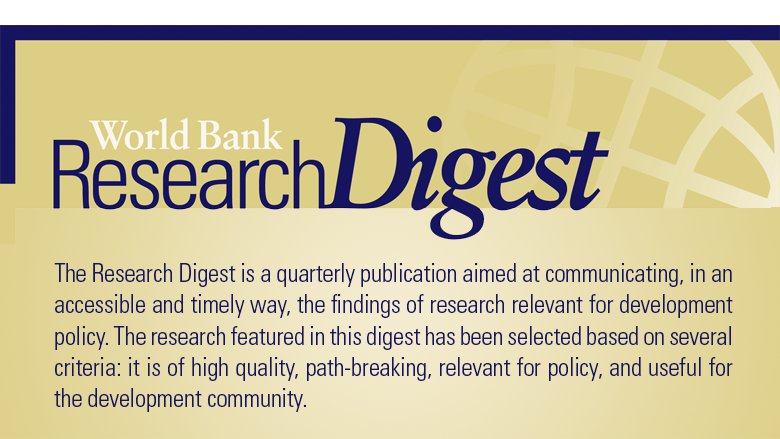Volume 14, No. 1, Fall 2019
This issue of the Research Digest focuses on Global Migration.
List of articles in this issue:
- Migration is Key for Reducing Poverty and Sustaining Economic Growth
- How Labor Markets Fit Into the Global Migration Debate. Migration policies should help lower short-term dislocation costs of native-born workers and more widely distribute economic benefits.
- How Big is the Payoff From Migration? Evidence from a Lottery. Outcomes for migrant lottery winners suggest the economic payoff to moving to a richer country comes immediately and persists for at least a decade.
John Gibson, David Mackenzie, Halahingano Rohorua, and Steven Stillman
- Reducing Barriers to Migration Boosts Welfare in China’s Rural Villages. A greater ability to migrate from China’s rural villages to booming cities boosts goods consumption with poorest households key beneficiaries.
Alan de Brauw and John Giles - Exposure to Immigrant Classmates and Natives’ Test Scores. Immigration debates rage on, but native children will find new friends in school, not worse learning outcomes.
Laurent Bossavie - How Aging, Education, and Migration Affect Wages. Aging and education have the strongest influence on wages, favoring the low-skilled, with immigration a minor factor that also helps reduce wage gaps.
Frederic Docquier, Zovanga L. Kone, Aaditya Mattoo, and Çaglar Özden - Highly Skilled Migration: “Brain Drain” or “Brain Gain”? Diasporas of highly skilled migrants, such as inventors, offer a path toward the internationalization of inventive activity.
Ernest Miguelez - Aging, Trade, and Migration. Dynamic sectors may relocate to younger markets when population ages. Immigration can prevent this relocation more effectively than tariffs.
Richard Chisik, Harun Onder, and Dhimitri Qirjo - Global Spillovers of National Migration Policies. Current and potential migrants constantly weigh location-specific utility levels, migration costs, and (expected) future opportunities.
Erhan Artuc and Çaglar Özden. - Getting a Better Sense of How Long Refugees Have Been in Exile. A rigorous review of UNHCR data finds that more than half of global refugees have spent 4 years or less in exile, a historical low.
Xavier Devictor and Quy-Toan Do - Creating a Migrant Rights Database. New Migrant Rights Database enables country contrasts as global community crafts a global standard for migration governance and human rights protection.
Justin Gest and Tom K. Wong - Recent Policy Research Working Papers on Global Migration
